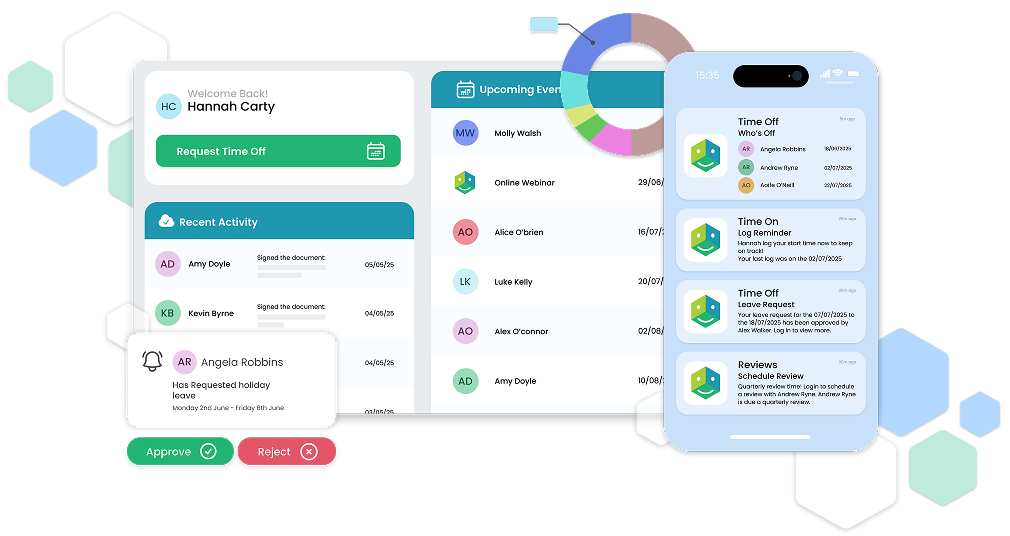On 7th March 2024, Ireland’s employment landscape saw a significant shift as Ministers Simon Coveney and Roderic O’Gorman introduced the right for employees to request remote and flexible working arrangements. This pivotal development is set to transform the work-life balance in Ireland, especially benefiting parents and carers.
Key Points for HR Professionals
Remote and flexible working rights
Employees in Ireland can now apply for remote working, with special considerations for parents and carers, to access flexible working hours.
Launch of a detailed code of practice
The Workplace Relations Commission (WRC) has developed a Code of Practice to provide practical guidance to employers and employees regarding the right to request flexible working and remote working.
Legislative background
These changes are supported by the Work-Life Balance and Miscellaneous Provisions Act of 2023, aligning with the goals of the EU Work-Life Balance Directive.

Exploring the Code of Practice
The WRC, acting on a request from the Minister for Enterprise, Trade and Employment, crafted the Code of Practice on flexible and remote working rights. This guideline was established under the Workplace Relations Act 2015, drawing insights from trade unions, employer groups, and the Irish Human Rights and Equality Commission (IHREC).
The Code aims to provide clear instructions for both employers and employees on how to adhere to the new provisions under the Work-Life Balance and Miscellaneous Provisions Act of 2023. It outlines the procedures for requesting remote working and flexible working for caregiving, aligning with the updated Parental Leave Act provisions.
The significance of this Code extends to legal proceedings, where it can be used as evidence, ensuring that the processes it advocates are followed in court or at employment adjudication forums.
You can download the code of practice here.
Minister Coveney highlighted the evolution towards remote working as a norm post-pandemic, noting the benefits of decreased commuting and more family time. Minister O’Gorman underlined the comprehensive range of benefits introduced under the new Act, showcasing the government’s commitment to enhancing work-life balance.
With these new rights in place, Ireland is taking a significant step towards a more flexible and inclusive workplace environment. HR professionals play a crucial role in guiding their organisations through this change, embedding these modern working practices to promote a supportive and adaptable work culture.









